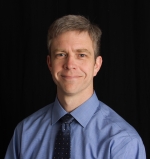
IMPORTANT NOTICE: This program is traditionally a face-to-face classroom training program, but the Spring 2021 semester section will be held online as we prioritize distance learning in response to the Novel Coronavirus (COVID-19).
We all have the best of intentions when it comes to our students. We want our students to be self-motivated--to have energy and enthusiasm for schoolwork and to be driven from within to do great work. We want to create warm, equitable, supportive, and collaborative learning environments. We want students to grow in their capacity to be responsible, kind, and ethical. And yet … we may find ourselves in language habits that actually undermine many of these (and other) positive goals for students.
For example, we want students to feel ownership of work, but when we say, "Here are the three things you're going to do for me in this next activity," we accidentally imply that we own the work and kids are working for us. “I like the way Mark is sitting so quietly!” is meant to make Mark feel good and promote positive behavior among his classmates. In fact, it may create resentment towards Mark and make others feel devalued.
“Wow! You did that math problem so quickly! You’re so smart!” is meant to reinforce and boost confidence, but it likely puts students in a fixed mindset and reduces their chance of taking on challenges or taking risks in math. Although we want our students to view work as enjoyable, when we say, "If you can work hard for the next twenty minutes, we'll do something fun," we clearly indicate that whatever is happening in the next twenty minutes is not fun.
So, what should we say? That’s what this workshop is all about! Through an active and interactive format, educators will:

Mike Anderson has been an educator for more than 20 years. An elementary public school teacher for 15 years, he has also taught preschool and university graduate level classes. In 2004, Mike was awarded a national Milken Educator Award, and in 2005 he was a finalist for NH Teacher of the Year. He also spent many years as a presenter, consultant, author, and developer for Northeast Foundation for Children, a nonprofit organization dedicated to creating safe, joyful, and challenging classrooms through the Responsive Classroom approach to teaching. Now, as an independent education consultant, Mike works with schools across the United States and beyond, supporting great learning through customized consulting. He has also taught workshops in Canada and Mexico and has presented at many national conferences including NCTE, ASCD, and Learning and the Brain. Mike is the author of many books about great teaching and learning including "The First Six Weeks of School," 2nd Edition (CRS, 2015), "The Well-Balanced Teacher" (ASCD, 2010), and "The Research-Ready Classroom" (Heinemann, 2006). His most recent book, "Learning to Choose, Choosing to Learn" (ASCD, 2016), was selected as the April 2016 ASCD member book and was sent to 62,000+ educators in more than 100 countries.
Thank you for your interest in this course. A new date will be schedule soon. If you would like more information, please submit your inquiry below and a staff member will reply shortly.